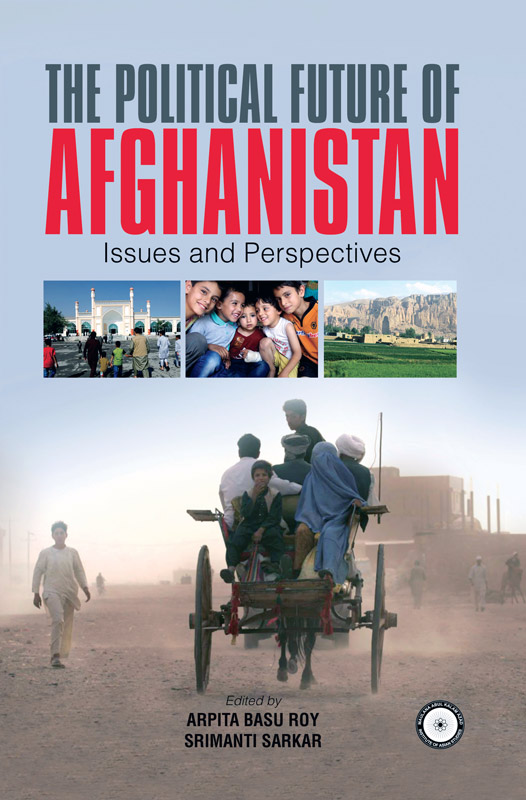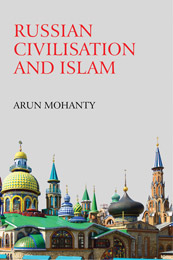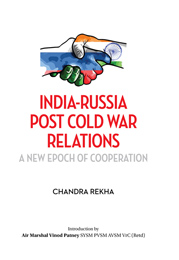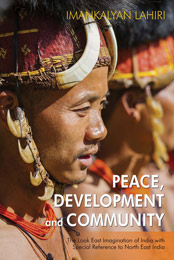Subjects
The Political Future of Afghanistan
Arpita Basu Roy and Srimanti Sarkar
Arpita Basu Roy and Srimanti Sarkar
Is Afghanistan’s political future at an impasse? There are both internal and external reasons supporting a response in the affirmative. Although considerable gains were made in the country following the 2001 international intervention, increasing insurgent attacks threaten the fledging post-Taliban government while strategies of regional and sometimes extra-regional states threaten to destabilise and weaken it from the outside. Efforts to guarantee stability continue to be undermined by the implications of a political settlement with the Taliban and other armed opposition groups.
The purpose of this volume is to critically examine the functioning of the present political arrangement and gaze into the possible alternative political scenarios, factoring in the role of various stakeholders such as the different ethnic groups, the insurgents, the warlords, the traditional political institutions in Afghan society. It discusses options like federalism and the problem of ethnic diversity, parliamentary or presidential forms of government, the question of neutrality of Afghanistan, the problem of traditional and modern political institutions, resurgent groups and the role of regional and extra-regional powers in Afghanistan’s political future.
Arpita Basu Roy is a Fellow at the Maulana Abul Kalam Azad Institute of Asian Studies (MAKAIAS), an autonomous institute under the Ministry of Culture, Government of India. She works on South and Central Asia, with Afghanistan being her area of expertise. She is a PhD in International Relations from Jadavpur University and has been the Pavate Wrangler Fellow at Cambridge University in 2010. Her research interests include issues related to human security, gender, population movements, problems of transitional politics and Indian foreign policy. She can be contacted at basuroyarpita@gmail.com.
Srimanti Sarkar is Research Assistant at the Maulana Abul Kalam Azad Institute of Asian Studies (MAKAIAS), Kolkata and a doctoral candidate at the Department of Political Science, University of Calcutta. Her research interests are theoretical postulates of Democracy and Neighbourhood Policy with particular focus on Bangladesh and Pakistan. She can be contacted at s.srimanti@gmail.com.
Contents
Contributors
Introduction
Abbreviations
1. Understanding the Aberration of the Liberal
Ontology of International State-Building
Zubair Popalzai
2. Afghanistan’s Ethno-Political Challenges:
A Case for Federal Arrangements
Raghav Sharma
3. Islam and the State in the Constitutional History of Afghanistan
Ambrish Dhaka
4. Afghanistan’s Political Institutions: A New Approach
Bahram Amirahmadian
5. NATO’s Withdrawal from Afghanistan: Post-2014 Scenarios
Maqsudul Hasan Nuri
6. Where is Afghanistan Headed?
Vishal Chandra
7. Women and the Political Future of Afghanistan
C. Sheela Reddy
8. Music as a Factor in the Political Stabilisation of Afghanistan
Diloram Karomat
9. US Policy towards Afghanistan and Options for India
Venkat Lokanathan
10. Conflicting Imperatives of India and Pakistan in Afghanistan
Anwesha Ghosh
11. Saudi Arabia’s Long-Term Policy towards Afghanistan:
The Consequences
Mirwais Balkhi
12. Afghanistan’s Political Future and the
Shanghai Cooperation Organisation
P. Krishna Mohan Reddy
13. India in Afghanistan: The Saga of India’s Role in
Afghanistan’s Political Future
Yow Peter Raiphea
Research Notes
1. Parliamentary System for Afghanistan:
Advantages and Disadvantages
Mohammad Ashraf Rasooli
2. Neutrality as an Institution of International Law:
The Case of Afghanistan
A. N. Medvedev
3. Silk Road Comes to Afghanistan Again
Sreemati Ganguli
4. Withdrawal of Foreign Troops from Afghanistan and
Preparedness of Its Security Forces
Abdul Hadi Khalid


 Political Science
Political Science



